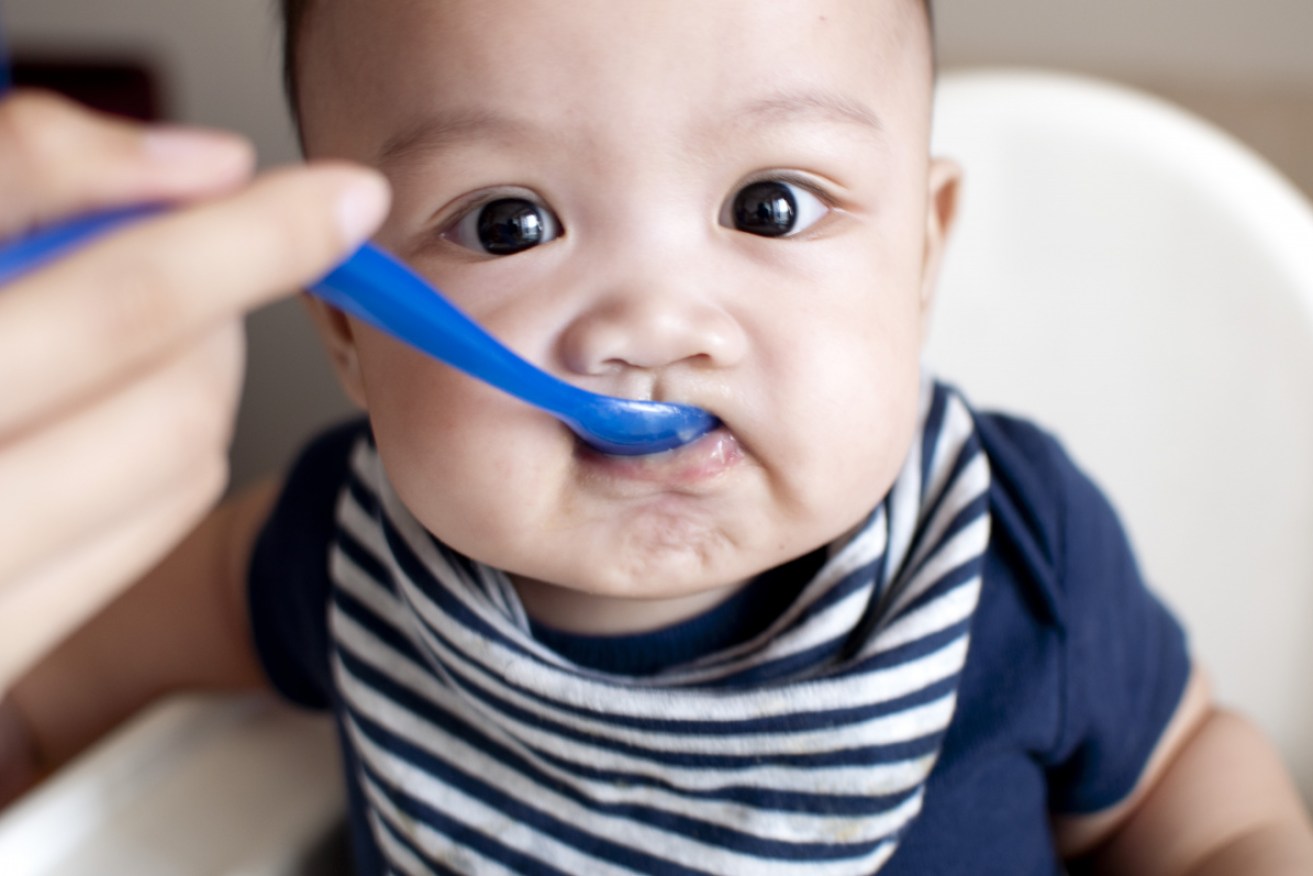Allergy prevention: Feed babies eggs and peanuts


The best time to introduce solid foods into an infant's diet is within their first year. Photo: Getty
Infants should be fed eggs and peanuts in their first year of life to avoid contracting food allergies, new research has recommended.
Children should be exposed to these foods between the ages of four months and one year regardless of their allergy risk factors, according to the new guidelines devised by the Australasian Society of Clinical Immunology and Allergy.
This is contrary to previous advice which had warned parents against feeding their children eggs and peanuts before they turned one.
The research, based on emerging evidence and published in the Medical Journal of Australia on Monday, also found that hydrolysed formula is no longer recommended for the prevention of allergic disease.
It says parents should introduce a variety of solid foods into an infant’s diet when they are about six months, but not before four months.
This is not a strict window of introduction, according to the report, but rather a recommendation not to delay the introduction of solid foods beyond 12 months.
Infants are less likely to develop food allergies if their food tolerance is strengthened early on in life.
The Australasian Society of Clinical Immunology and Allergy has created a new document outlining how parents should introduce high-risk infants to peanuts.
Parents should speak with their doctor upon making any drastic changes to their child’s diet, especially for infants who are at a high risk of developing food allergies.








